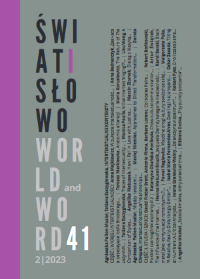Dwelling in a Junkyard: Longing for Home and Self in Janisse Ray’s Ecology of a Cracker Childhood
Dwelling in a Junkyard: Longing for Home and Self in Janisse Ray’s Ecology of a Cracker Childhood
Author(s): Isabel Maria Fernandes AlvesSubject(s): Environmental interactions, Theory of Literature, American Literature, Sociology of Literature
Published by: Akademia Techniczno-Humanistyczna w Bielsku-Białej
Keywords: Ecology of a Cracker Childhood; Janisse Ray; nature writing; place; region; local;
Summary/Abstract: This article discusses Janisse Ray’s Ecology of a Cracker Childhood (1999) as an example of the nature writing tradition, suggesting that her knowledge of southern Georgia is based on an intimate relationship with that specific place. Drawing from Thomas Lyon, Lawrence Buell, Lorraine Anderson, Nathan Straight, and L. Hönnighausen my approach focuses on how Ray’s work reflects on the relationship between a childhood spent in rural isolation and poverty in a junkyardand the diminishing longleaf pine ecosystem that used to cover the South of the United States. This method will help establish a connection, on the one hand, between Ray’s growing awareness of a lost self and the loss of natural ecosystems, and, on the other hand, between Ray’ ssuccess in building a home, which means repairing her own self, and the restoration of the longleaf pine ecosystem. Moreover, I argue, Ray is looking to determine her place within that specific ecosystem but also in the larger world, thus embodying the paradox inherent in the way place is understood in the light of the new regionalism: it roots the body but liberates the imagination. Arguing that considerations about place are at the basis of nature writing, I show that Ray constructs a literary home in which she offers alternatives to repair the longleaf pine ecosystem; providing for a vocabulary that readers might use in formulating their own relationships with the places they live in, urging them, southerners and all others, to take responsibility in promoting healthier relationships between humans, nonhumans, and the environment. Ultimately, this article contributes to the debate in nature writing by addressing Ray’s Ecology of a Cracker Childhood as an example of how in the face of a widening global environmental crisis, we might engage more closely with local and regional perspectives as they often demand a heightened environmental sensibility and a language that contributes to repairing both ecological and personal damage.
Journal: Świat i słowo
- Issue Year: 2/2023
- Issue No: 41
- Page Range: 381-399
- Page Count: 19
- Language: English

